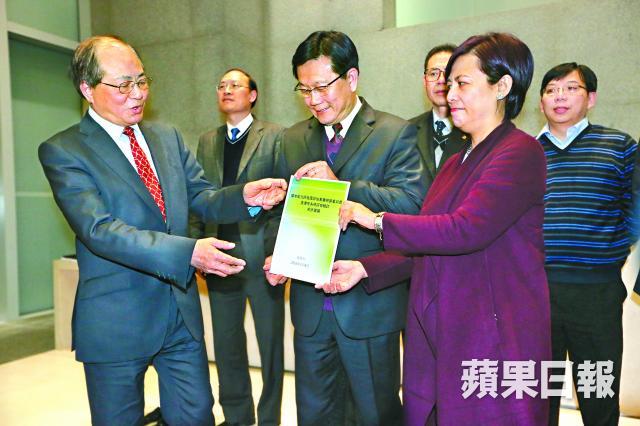A committee reviewing the controversial Territory-wide System Assessment has suggested only having 10 percent of primary three students take the examinations this year as part of a test trial. However, the assessments will be resumed for all students the following year, prompting parents to question the government’s sincerity in conducting the review.
The suggestion follows a two-month long deliberation on the topic, Apple Daily reported. The preliminary report, which was submitted to the Education Bureau, finds that the exams enhance the students’ learning, but suggestions such as only having the tests every alternate year could not address the problem of over-drilling.
Therefore, a “representative” test trial will be run this year to review the effectiveness of the tests. Only 10 percent of primary schools, meaning 50, will be required to take part in the trial. The data collected from the test trial will then be analysed and the assessments – with the revised arrangements – will resume for all students in 2017.

The trial run will involve amended TSA test papers, in which the essays in the English and Chinese reading comprehensions will be shorter in length, and the number of questions in the maths paper will be reduced by 20 percent. Schools will also no longer be required to report their performance on each question; instead, they only need to report on the overall performance.
Secretary for Education Eddie Ng said, “In principle I agree with and support the committee’s direction. This includes having only part of the schools take part in the try-out arrangement plan and introducing different reporting formats for schools to choose from. It also clarified the Education Bureau’s internal guidelines, which state that the data will not be used to assess the school’s performance.”

The school’s participation in the test run will be on a voluntary basis. Hong Kong Examinations and Assessment Authority Secretary General Tong Chong-sze said he hoped that the 50 schools would include ones of different types and from different districts; the school’s academic performance will not be a factor for consideration.
The trial will involve at least 3,000 primary school students and it is expected that the list of chosen schools will be announced before April. Parents whose children are enrolled in schools chosen for the examinations will be invited to contact the school and explain any concerns.
The committee denied that the decision to resume the test next year was made hastily and said they were confident that the trial would work. The Hong Kong Federation of Education Workers said that they generally agreed with the committee’s suggestions and believed that it balanced the opinions and views from different sides, RTHK reported. It said that it expects the Education Bureau to implement the suggestions and to continue to improve on the assessments.

TSA Concern Group convenor Ho Mei-yee said that she was shocked at the committee’s suggestions. She believed that the Education Bureau had ignored the views of the parents and only made administrative adjustments to the exams. She also doubted the sincerity of the government’s review and said that resuming TSAs for the whole of Hong Kong in 2017 was a step backwards.
The TSA exams, taken by primary three, primary six and secondary three students in Hong Kong local schools, are aimed at measuring students’ “strengths and weaknesses” in learning, authorities said. Although results of the tests do not affect students’ applications for secondary schools or universities, many feel the pressure to perform well. Grades-oriented school authorities also give extra work to students to help them score better in TSA exams.
See also: Primary school students speak at 9-hour long LegCo hearing on TSA controversy
See also: Teachers union urges TSA boycott as officials ‘blame excess exercises on schools’
